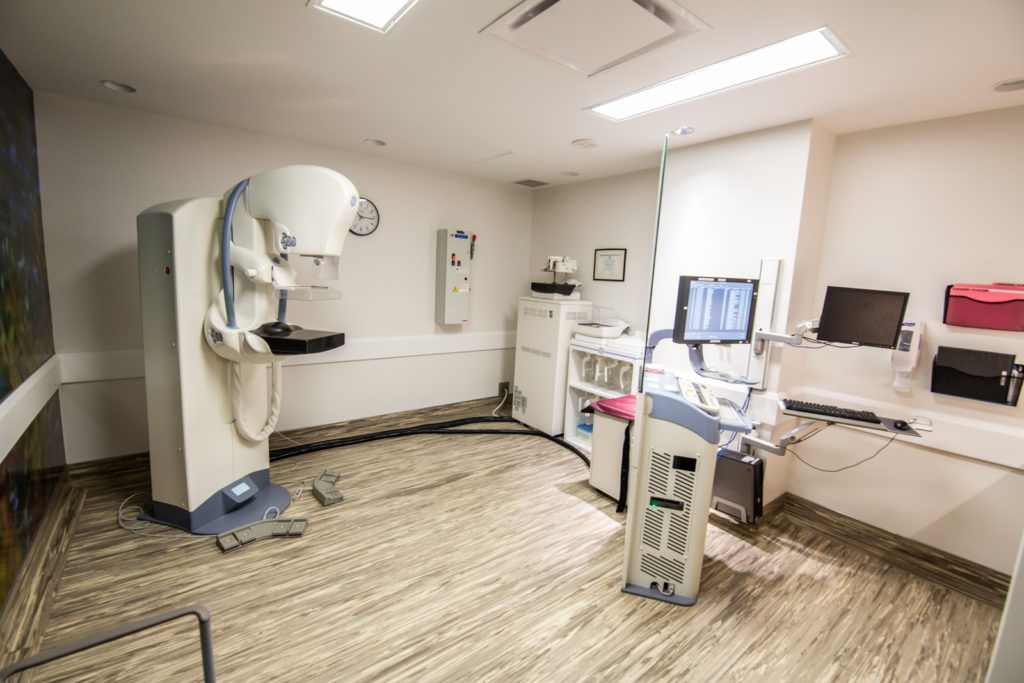
Thousands need to Get Back on Track with their cancer screening
HAMILTON, ON – Life is busy and a lot has been put on hold over the last two years due to the pandemic. The Hamilton Niagara Haldimand Brant (HNHB) Regional Cancer Program is encouraging everyone to get back on track with cancer screening.
Pandemic-related delays in access to health care services has created a significant backlog of individuals who are overdue for screening. Currently there are approximately 31,000 residents overdue for breast screening and 45,000 residents overdue for cervical screening in the HNHB region. Experts believe that this backlog in cancer screening has led to a more concerning statistic – an increase in undiagnosed, and therefore untreated, cancers.
“I am very concerned that because this pandemic has led to less cancer screening, there are folks out there who have early stage cancers and pre-cancers that we normally would have found, treated and cured – or even prevented,” says Dr. Meghan Davis, Family Physician and Regional Primary Care Lead for the Hamilton Niagara Haldimand Brant region. “But it’s not too late – the sooner the better is statistically a good motto when it comes to finding cancer.”
October is Breast Cancer Awareness Month and October 24-30 is Cervical Cancer Awareness Week so there is no better time to #GetBackOnTrack. Delaying or missing an appointment, test or procedure may have a negative impact on your health. The bottom line is that regular cancer screening is essential, and the Regional Cancer Program is visiting local Go Train stations, speedways and running tracks this fall to share information about cancer screening. Information is also available at www.hnhbscreenforlife.ca and on the Regional Cancer Program Facebook page @screenforlifecoach.
“Although some progress has been made, there are still a significant number of people who are overdue for screening.” says Kristi MacKenzie, director of the Regional Cancer Program at Hamilton Health Sciences. “This means there are possibly hundreds of undetected cancers in our region, and thousands for the province.”
The Ontario Medical Association (OMA) recently reported that about 400,000 fewer mammograms to screen for breast cancer were performed in the province during the pandemic than forecasted. The survival rates of women with breast cancer decline if the detection of the disease is delayed.
Cancer screening tests help detect cancer early when you are feeling well and before you start to feel symptoms. Cancer screening is important because cancer is easier to treat when it is found early. There are free cancer screening programs for breast, cervical and colorectal cancers in Ontario:
- Breast screening with a mammogram is usually recommended every two years for individuals 50-74 years through the Ontario Breast Screening Program
- Cervical screening with a pap test is usually recommended every three years for individuals 25-69 years through the Ontario Cervical Screening Program
- Colorectal cancer screening with an at-home ‘poop test’ is usually recommended every two years for individuals 50-74 years through the ColonCancerCheck Program
Recommendations may differ based on an individual’s personal and family health histories, so speak with your primary care provider about what tests are right for you. There is also more information about each cancer screening test and how to arrange an appointment on the Regional Cancer Program website at www.hnhbscreenforlife.ca.
For people who do not have a primary care provider or face barriers in accessing traditional screening services in the community, the Mobile Cancer Screening Coach offers another option for screening – it is a provincially-funded program offering Ontario’s three free cancer screening tests on a specially-equipped coach bus that visits areas of the region with low screening rates.
Trudie Nicholls was out shopping when she came across the Mobile Cancer Screening Coach. A quick check by the coach’s clerk showed that she was overdue for her mammogram, so she opted to have it done then and there, on the coach.
A couple of weeks later, Trudie received a phone call from the coach’s mammography technologist. The radiologist reviewing her breast images noticed an irregularity and wanted more tests done at the Breast Assessment Centre, located at HHS’ Juravinski Hospital and Cancer Centre (JHCC). This, in turn, led to a breast cancer diagnosis and life-saving treatment including a double mastectomy.
“That shopping trip saved my life,” says Trudie.
For Trudie’s full story, please visit https://www.hamiltonhealthsciences.ca/share/illuminight-mobile-coach/.
“Lots of people in our community face more than one barrier,” says Davis. “The coach addresses barriers by meeting the people where they are, whether it’s in their neighbourhood or their workplace through our workplace program. Coach services are community-based, holistic, culturally appropriate and welcoming to clients who might not otherwise access these services in the health care system.”
Ontario Health (Cancer Care Ontario) sends a letter to invite eligible people to begin screening when they are eligible and repeat their screening when they are due again.
“Keep an eye out for communication in your mailbox,” says Riley Crotta, manager of the Regional Cancer Programs. “This acts as a friendly reminder to make your health a priority. Even if you have not received a letter, be sure to keep the lines of communication open with your primary care provider. If you have received a letter, but have not acted on it, there is no better time to get back on track and stay up-to-date with your cancer screening.”
